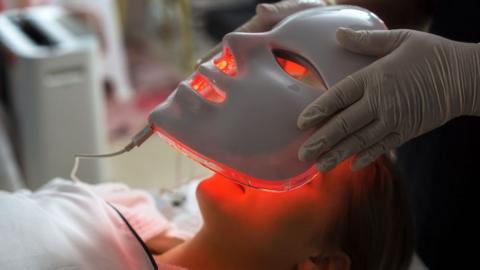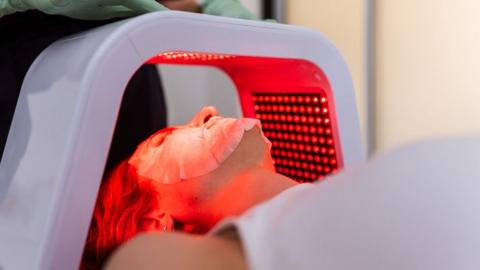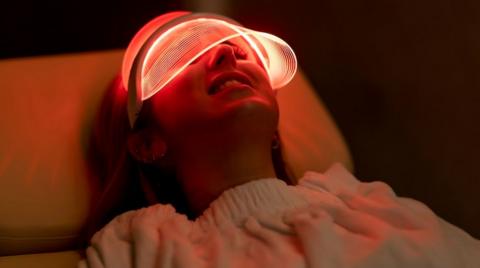LED technology has been used to address a number of skin issues, such as eczema, mild to moderate acne, psoriasis and sun damage in a medical setting.
But the at-home LED market is on the verge of becoming a massive industry - with masks and other devices retailing for anything from £40 to £1,500.
The technology harnesses the power of light-emitting diodes (LEDs), which then stimulate skin cells when they are exposed to the skin repeatedly.
Mask developers make big claims that at-home LED masks can be used to treat acne scars, sun damage and fine lines - but does this stand up to scrutiny?


